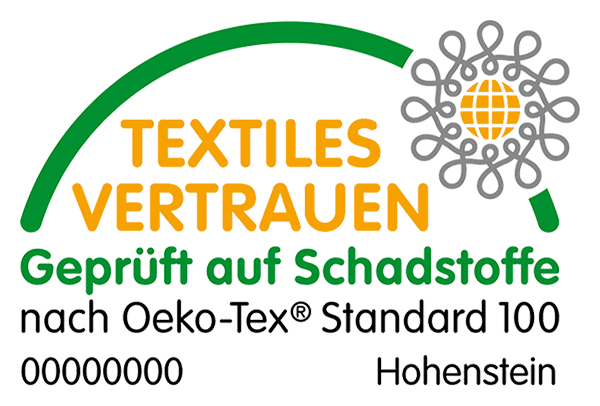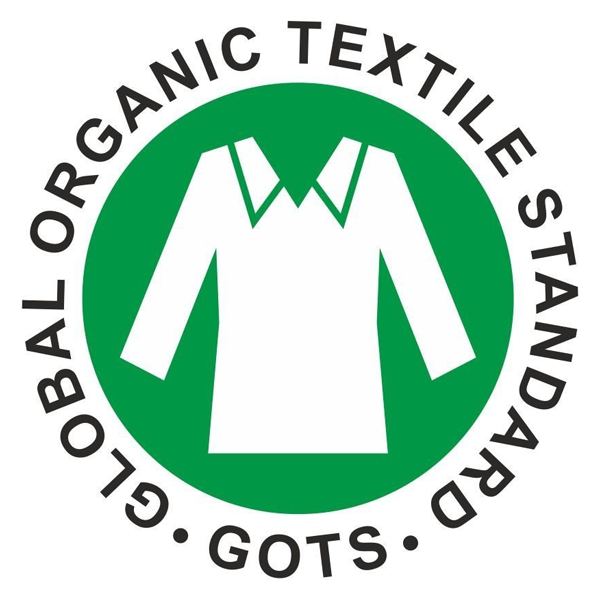Why organic cotton?
Bio Baby: the right choice for a better and healthier start of your child´s life
All of us, the conscious parents, know that the skin is our body´s largest and fastest-growing organ. Newborns and young infants, when compared to adults, are often susceptible to toxic exposures and synthetic chemicals due to their extremely sensitive skin. Harmful substances can be easily absorbed through their skin into the bloodstream. Which may result in irritation, allergic response, chemical burns, and allergic contact dermatitis.
The skin of an adult can absorb up to 60% toxic and poisonous substances, and the baby´s skin is five times thinner than that of an adult. Considering these two well-known facts, you can judge on your own how important is to protect the skin of our babies in the best possible way we can.
In the first year of their life, babies spend 16 hours of the day sleeping. Even when they are not in their crib, they are somewhere in their own room. It is therefore crucial to surround our children with love and purity, and to offer them a healthy environment.
Most people associate the word "organic" mainly with food or cosmetics. In fact, the conventional cotton production uses much more harmful chemicals than any other industry. Hence, we believe that clothes for babies and children from 100% organic cotton are mandatory for the healthy skin of your child.
Organic Cotton
25% of world pesticide are used in cultivation of cotton, causing destruction of the earth, air, water and severe health impacts on the workers in the field. When the cotton is grown organically, agricultural chemicals or pesticides are not used.
Instead of these toxic substances, organic farmers aim for sustainable production as they use beneficial methods to build soil quality, enhance biodiversity and protect the air and water on which we depend. Furthermore, using less water than the conventional cotton production, it helps preventing the ground water pollution.
Cotton and the Environment
According to the Organic Trade Association, organic cotton is grown without the use of toxic pesticides or fertilizers. The cultivation of cotton through traditional methods requires the use of large quantities of pesticides. This has a strong impact on the environment and pose a risk to those who work in the field.
Cotton uses approximately 25% of the world´s insecticides and more than 10% of the pesticides (including herbicides, insecticides, and defoliants). In 2003, 25 million kilograms of pesticides were sprayed on the 50 millions decares, according to the Association of Bio Trade. Some of the used chemicals are considered to be the most toxic chemicals in the world.

Higher Standard
Undoubtedly the worldwide price of products from organic cotton is higher than that the one of products from conventional cotton. Having said that, before you return the items from organic cotton back on the store shelf, we ask you to think twice. You need to remember the fact that if you buy an organic product, you will pay for clean water, clean air, healthy workers and fair pay for their labor, global economic progress, etc.
Due to the facts that Bio Baby´s clothes are 100% produced from organic cotton and have high quality standards, they will "outlive" many times the conventional cotton production, as the baby bodysuits can be worn by younger siblings without a change in the color and quality of the product. It seems it turned out that if we are looking in the long run, the price for organic clothes is much cheaper.

Certificates
It is of great importance to pay attention on the certificates given for the organic cotton used, when choosing your baby clothes. This is the best way to ensure yourself that you are paying for a truly organic production controlled by farmers and companies. The Global Organic Textile Standard (GOTS) is recognized as the world's leading processing standard for textiles made from organic fibers due to its high environmental and social criteria.

